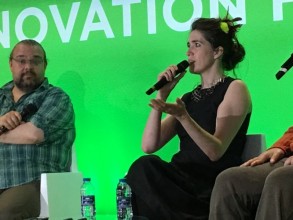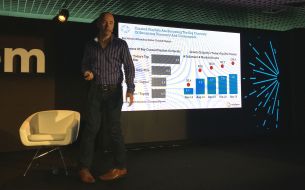 The annual Midem conference, which turned 50 this year, used to be a glamorous affair where more than 10,000 music execs gathered to strike deals and flaunt their (large) expenses budgets in the hotel bars of Cannes.
The annual Midem conference, which turned 50 this year, used to be a glamorous affair where more than 10,000 music execs gathered to strike deals and flaunt their (large) expenses budgets in the hotel bars of Cannes.
In 2016, Midem is much smaller – “4,400 or so” delegates according to its organiser – and with many fewer high-rollers in the bars, but a lot more discussion on conference stages about the digital present and future for music.
Source: From YouTube to the blockchain: how music and tech are colliding in 2016 | Technology | The Guardian


 Paul Harrington, a leading session player on harmonica based in Rockwall, Texas, today announced that after a lengthy quest he has received digital session royalties for the Pitbull track, “Timber,” featuring Ke$ha.
Paul Harrington, a leading session player on harmonica based in Rockwall, Texas, today announced that after a lengthy quest he has received digital session royalties for the Pitbull track, “Timber,” featuring Ke$ha.





